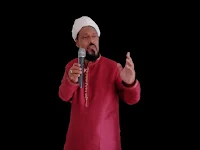Qur'anic Commandments- 6
‘And in their wealth and belongings was a rightful share for those who
asked for help and for those who could not.’ (51:20)
‘Take
alms out of their wealth, so that you may thereby purify them (of their evils) and enhance them in their virtuous deeds.’ (9:103)
‘…and observe Prayer, and pay the
Zakāt, and set apart a goodly portion of your possessions to give for the sake of Allah. And whatever good you send on before
you for your souls, you will find it with Allah. It will be better and greater
in reward …’ (73:21)
‘And whoso is rid of the
covetousness of his own soul–it is these who will be successful.’
(59:10)
‘Zakat’
is a Qur’anic injunction: an obligation on rich believers to part with a share
of their resources and wealth with the needy members of society, in pursuit of
individual well-being and collective development. Among numerous teachings that
Islam recommends to ‘flatten’ the glaring inequities of the social order- where
different classes of people live together with diverse fortunes; altruism and
philanthropy are promoted through faith practices such as ‘Zakat’ and
‘Sadaqah’. Whereas Zakat denotes compulsory giving binding on all the rich,
Sadaqah is voluntary giving strongly recommended on all believers who seek
spiritual merit in Divine pleasure.
The
Holy Qur’an speaks about Zakat, in over 80 places; almost always join the
payment of Zakat along with the
observance of Prayer (Al- Salat) -
both together constituting among the primary obligations of Aqeedah Islamiah. “And
they were not commanded but to serve Allah, bearing true faith in Him, (and) being upright, and to
observe Prayer, and to keep on presenting the Zakat. That is the true and firm conduct of faith”. (98:6)
The
payment of Zakat and Sadaqah by the believer in service of fellow humans and
the society at large has many beneficial consequences. As the Holy Book notes
concerning Sadaqah, “the alms are only for the poor and the needy, and for
those employed in connection therewith, and for those whose hearts are to be
reconciled, and for the freeing of slaves, and for those in
debt, and for the cause of Allah, and for the wayfarer—an ordinance from Allah.
And Allah is All-Knowing, Wise.” (9:60)
The
believer stands to benefit from these good deeds in both visible and subtle,
spiritual ways: “And whatever of
wealth you spend, it is for yourselves, while you spend not but to seek the
favour of Allah. And whatever of wealth you spend, it shall be paid back
to you in full and you shall not be wronged” (2:274)
Altruistic
individuals not just stand to derive inner happiness from their generous
outreach, but they also contribute to betterment of the social conditions that
attract Divine forgiveness, mercy, pleasure and blessings on them and their
progeny in this world and the world to come; the Qur’an alludes in so many
verses: “And those who persevere in seeking the favour of their Lord, and
observe Prayer, and spend out of that with which We have provided them,
secretly and openly, and repel evil with good. It is these who shall have
the best reward of the final abode” (13:23).
Likewise, the Book of God condemns in no uncertain terms those who remain
indifferent to the social obligations on payment of Zakat.
Read
the Qur'anic commandments Below:




















